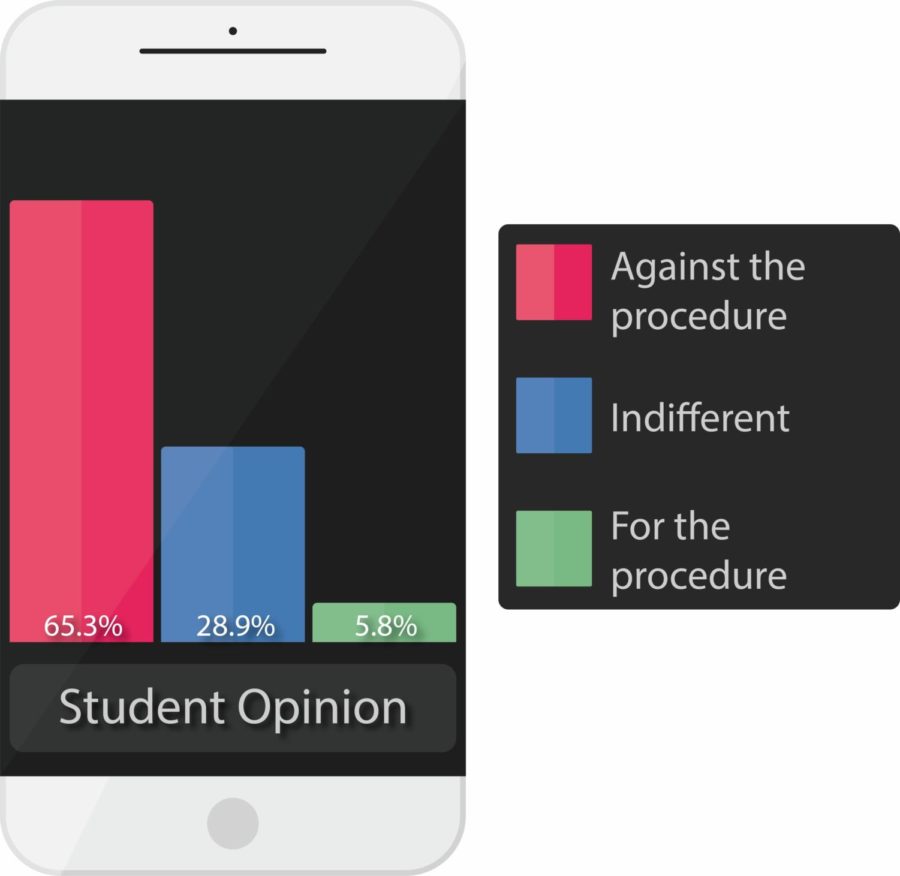VHHS reinforces phone procedure
A majority of VHHS students report being against the new phone procedure.
This year, the phone procedure has been reinforced in many departments, specifically the math and English departments as the two departments have been experimenting with reinforcing it since last year. These reinforcements include cubbies for phones and putting phones near the whiteboards during class.
Students have varying opinions on the new procedures. In a poll put out by TSP, 65% of the responses were against the procedure, 6% were for it and 29% were indifferent.
Jacob Zimmerman (11) said that teachers should just be more attentive and they should notice when a student has his or her phone out in class rather than having a cubby system. He believes that the new enforcement is not necessary, due to how important phones may be in a certain class.
“Why do you have to put your phone on a ledge when you can just have it in your pocket…some classes need you to have your phone,” Zimmerman said.
Nicole Barrus (12) is one of the students that is indifferent to the policy, as she does not use her phone in class. She finds the new procedure to be a good effort, but it doesn’t seem to be working.
“I think it’s a good thing to have a change…but I already see people just who don’t bother, and teachers who don’t bother checking [for phones],” Barrus said.
The answers to the poll about how beneficial the procedures are were almost evenly split. 21% thought it is beneficial, 41% find it unbeneficial and 38% are unsure if it has improved the learning environment.
Not every teacher has to use the procedure. Dean Powell explained that it is the teacher’s choice to use cubbies or other forms of enforcing the procedure. She mentioned that the English and math departments seem to use it the most across the board and it has been working well for them.
English Department Chair Ms. Nieves spoke about the overwhelming agreement by English teachers to implement the cubby system after seeing how the math department did it last year. She has seen it working in her own classroom, and has heard from other teachers that it has been successful for them, as well.
“Overall, when we [English teachers] were talking about that, the sentiment was ‘I think it’s great’…Kids seem to be more focused.” Nieves said.
Last year, math teacher Mr. Pardun enforced the policy by putting phones near the whiteboard at the beginning of class because he had a problem in his class with phones. He got positive feedback from some students at the end of the year that said it was actually better to put the phone there and to focus on class.
“They [the students] said that privately and not in front of everyone,” Pardun said with a laugh “but I think more people thought it.”
Pardun does not use the cubby system in his classes this year, as he doesn’t see a phone problem in his classes right now.
VHHS Choir Director Mr. Little enforces the phone procedure by telling students to put their phones in their choir folder cubbies. He said that his students would be on their phones behind their folders in class last year, losing their focus on what is occurring in class.
“It was a total distraction from the focus…and if there’s one thing we’re trying to teach is focusing your mind, focusing your attention,” Little said. “Adolescent brains need that distraction removed.”
Social Studies Department Chair Mr. Mann does not have a cubby system in his classroom. He enforces the policy by not allowing phones to be out during class, but he does not require his students to put their phones in a cubby.
The phone procedures in classes may change in the future, but Powell has seen it in action and thinks it’s working well.
“What I’ve heard from students that it’s nice when that distraction is gone because even though you want to focus, you have your watches, you have your phone vibrating, you see it pop up and it’s hard to focus on the content.” Powell said.
So far, there has only been one phone incident that has been prominent regarding a student not following the procedure in an English class, which was mentioned by Nieves, compared to the problems that were had with phones last year.

